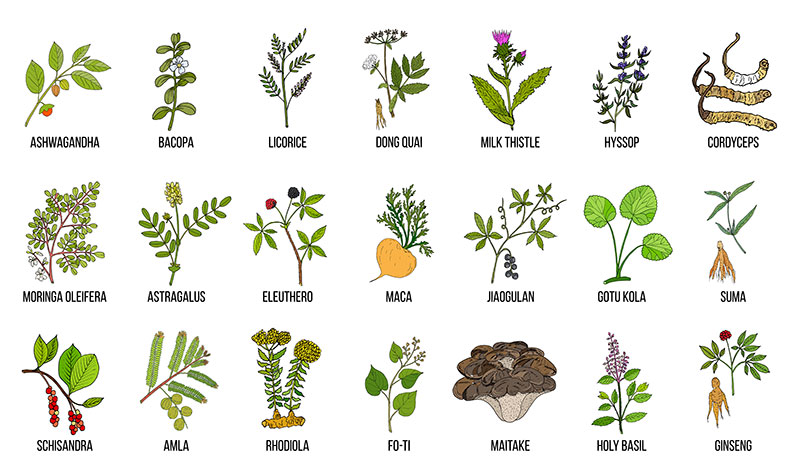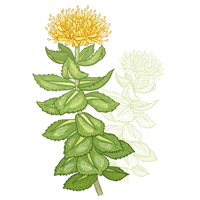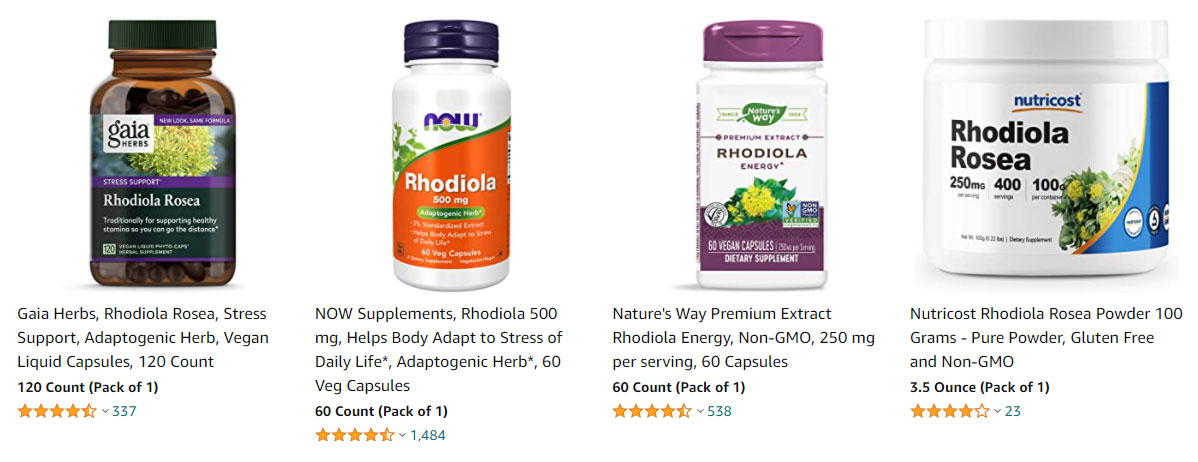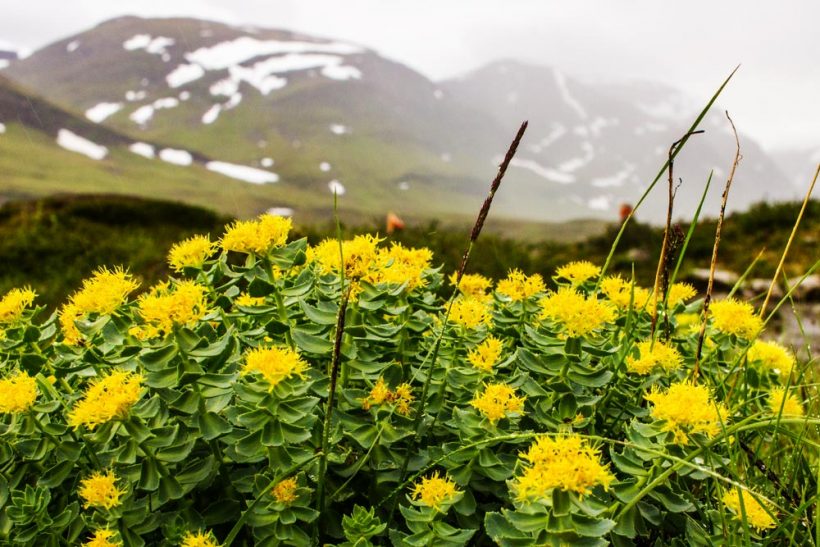Rhodiola stress
When the Cold War officially ended almost thirty years ago, the Western world began to learn about the secrets that Russia had been hiding from us for many years. Aside from government policies, weapons information and space exploration, I think one of the most important discoveries was a plant known as Rhodiola Rosea.
Rhodiola Rosea, also known as "Arctic root" or "golden root", is an adaptogen, which means that it has the ability to increase the body's natural resistance to physical and emotional stress, fatigue, depression and illness. More potent than Siberian Ginseng, it grows wild in the Arctic regions of Siberia. Natives drinking tea made from rhodiola generally lived to be over a hundred years old. It was smuggled across the Russian border into China and was used by Chinese emperors in search of longevity and immortality.
It is interesting to note that the Russian government was quite willing to share information about Siberian ginseng with the rest of the world, which is also the subject of many scientific studies. However, out of sight, hidden behind the Iron Curtain, they were at the same time studying Rhodiola Rosea and discovering that its virtues were much more powerful. During the Cold War, Rhodiola was used secretly by Russian army officers, Olympic athletes, major political leaders, international finance professionals, chess masters and researchers themselves.
RHADIOLA, AN ADAPTOGENIC PLANT
Adaptogens, as named in botanical language, are herbs that have a normalizing effect. They are restorative, not curative, and are declared to be harmless and have no side effects. They are said to be nature's response to stress, which is to some extent involved in many illnesses, injuries, disabilities and deaths, but which also induces other conditions such as cancer, cardiovascular disease, stroke, hypertension or diabetes.
When adaptogens are used, the body becomes "pre-adapted" and is therefore able to react appropriately to stress. To be an adaptogen, a plant compound must meet three specific criteria:
- the adaptogen produces a non-specific response to stress in an organism, such as increased resistance to multiple stressors, including physical or psychosomatic, chemical or biological (unlike echinacea, which produces a specific effect on the immune system).
- the adaptogen has a normalizing influence on physiology independently of the changes in physiological norms caused by the stressor. In other words, it helps to bring cell function back to normal, regardless of the source of the induced stress.
- the adaptogen is incapable of influencing normal body functions more than necessary. The body will use what it needs and the excess will simply be wasted and not harmful. In other words, overdose is very unlikely.

THE BENEFITS OF RHODIOLA
The physiological effects mediated by Rhodiola Rosea are numerous and important:
• It prevents cortisol and adrenaline burns on the heart by reducing their release from the adrenal glands in times of stress.
• It prevents the increase of cholesterol and triglycerides produced by stress.
• It improves sports performance by increasing the muscle/fat ratio, hemoglobin and erythrocytes in the blood, the ability to increase body mass, ATP (energy) and creatine phosphate and finally it mobilizes fatty acid reserves during prolonged efforts.
• It helps eliminate depression, obsessive-compulsive disorder (OCD), seasonal affective disorder and insomnia by improving the transport of serotonin, tryptophan and hydroxytryptophan in the brain by inhibiting two enzymes that metabolize serotonin, catecholmethyltransferase and monoamine oxidase.
• It has powerful antioxidant properties that help prevent diseases associated with aging and limit free radical damage associated with cellular mutations or cancer.
• It enhances our immune system's ability to fight cancer by inhibiting the stress chemicals adrenaline and norepinephrine (these catecholamines suppress the killer cells in our body that kill cancer cells) and by inhibiting cortisol (which itself inhibits other important chemicals in our body's defense system: interleukin and interferon).
OTHER DETAILS AND DOSAGE

There are about 20 different species of Rhodiola used in Asia for medicinal purposes.
Some active ingredients are common to all Rhodiola species, such as tyrosol and rhodioloside (salidroside). Important constituents such as the latter as well as rhodioline, rosin, rosavin and rosiridine are specific to Rhodiola Rosea and are essential for their adaptogenic properties.
As there are many products on the market that can be confusing, the best supplement to use would be one that has been standardized to contain specific amounts of these components. A therapeutic dose for chronic use could vary between 3.5mg and 6.5mg of rosavin per day. Three times this dose could be used for single use, such as for an examination or a sports competition. Side effects are practically non-existent, except at extremely high doses.
Due to lack of hindsight, it should be avoided during pregnancy or breastfeeding.

HOW TO TAKE RHODIOLA: THE BENEFITS IT HAS BROUGHT ME AND SOME IDEAS
Rhodiola can easily be taken in the form of capsules. As said before, it is an adaptogen. My personal experience has shown me that it was particularly useful when I had to face changes. For example, when moving house, changing seasons, or moving from adolescence to adulthood. My cognitive functions improved and I was tired for a long time, but the Rhodiola helped me a lot.
For best results, Rhodiola can be combined in tincture or powder form or combined with other plants such as borage or valerian. However, I realized that the dosage and the combination of herbs depends on many factors such as age, health condition, weight, prescription drugs you are taking, etc. Any herbalist worthy of the name will be able to create a custom dosage according to your needs (and you can save a lot of money and time in trial and error...).
One of the best ways, in my humble opinion, to prepare Rhodiola is to take it in the form of tea. Although Rhodiola can be taken in capsule form as a dietary supplement, traditional methods have often incorporated the plant into teas, tinctures and tonics.
HOW TO PREPARE YOUR RHODIOLA TEA
1. Rhodiola tea can be prepared at home with few ingredients: start by finely chopping 5g of Rhodiola.
2. Place what you have chopped in a container and pour 230ml of boiling water over it.
3. Leave to infuse for 4 hours and filter.
Rhodiola tea can have a strong medicinal or potentially unpleasant taste. You can dilute it in fruit juice, sparkling water or other herbal teas. For those who prefer a less time-consuming method of tea preparation, many teas containing Rhodiola as the main ingredient are commercially available.
To obtain a tincture that can be absorbed alone or with the addition of other beverages, place 30g of Rhodiola Rosea in a coffee grinder and grind until a fine texture is obtained. Add 150ml of pure vodka (without herbs or additives), shake well and let steep for 3 to 5 days at room temperature. Separate and filter the extract. The recommended dosage for Rhodiola tincture is 1/2 teaspoon 3 times daily for 10 to 20 days.
This tincture is similar in nature to a Rhodiola tonic called Nastojka. It is a Ukrainian recipe combining equal parts fresh Rhodiola and vodka at 80 degrees to create an adaptogenic drink that relieves stress, stimulates mental and physical energy, stamina and sexual performance.
All in all, Rhodiola is an excellent ally and I strongly advise you to use it!


